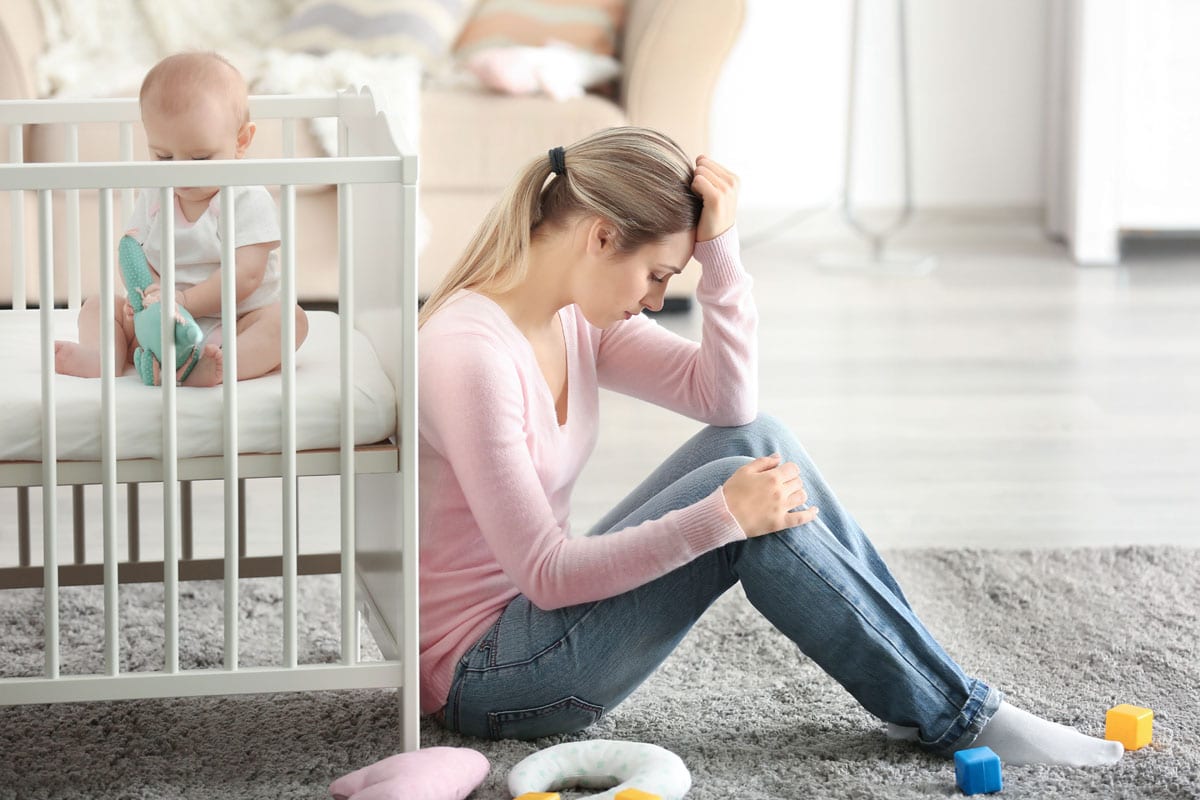Even on your best days, parenting can still be a challenge. If you’re dealing with depression, however, it can be more difficult. Not only will your condition affect your child’s well-being, but it can also lead to them developing similar symptoms, which can add further stress to your mental faculties. However, you shouldn’t lose hope since you can make some lifestyle changes to keep melancholia at bay.
Depression is a common illness among many women who are struggling with the hardships of being a mother. Moms face stress from raising children, financial strain, marriages going through stressful times and relationships with other family members. Any of these aspects can lead to depression.
Depression affects millions of people every year, including women who are pregnant or striving to conceive. Motherhood can be challenging enough without having to face depression. These 12 tips for moms dealing with depression will help you deal with symptoms and find healing and hope.

In This Article
Eat a Healthy Diet
Start the day with vegetables and fruits or by making a refreshing smoothie. This will provide your body with the needed energy to face the day as well as instantly make you feel better.
It’s common for many moms to indulge in unhealthy snacks, especially when they’re feeling down or when they think they’re depressed. If they believe they’re going through so much, they consider eating as a reward for everything they’ve done. Although it’s okay to treat yourself to sweets or some chips every now and then, remember that these foods are high in sugar and preservatives, which aren’t good for your body.
If you want to know if you’re just feeling under the weather or you’re really depressed, check out the quiz on this site.
Set Time for Meditation or Exercise
Exercise doesn’t only improve blood circulation, but it’s also associated with increased levels of happy hormones, including serotonin and endorphins. It can sometimes be a challenge for moms to insert some time for exercising. However, you don’t have to go to a gym to exercise. If you can, try walking with your child or baby to the park or around the house. Or, you can get help from your partner or other people to look after the kids while you jog or walk outside.
You can also meditate by sitting calmly and practicing how to remove negative thoughts from your mind. Recite your goals in life together with a mantra to help keep your focus and be alert.
Another way to relax your mind and muscles is by doing yoga. When you relax your mind, you’ll feel much better and will be in better control of your feelings.
Get Enough Sleep Every Day
If you’ve just given birth, getting enough sleep at night may be difficult. If this is the case, try to squeeze in some shut-eye while the baby sleeps, too. While the baby grows and needs less feeding at night, you should have a better opportunity to get enough nighttime sleep.
If you still find it difficult to sleep even after following a sleep routine, consult with your family provider if you need any medications.
It’s Okay Not to Be Perfect
You can’t always pretend or try to be the perfect mother. It’s normal to feel sick sometimes or not give your all. There may be days when the house is a mess, or you give your kids candy. It’s okay. You don’t have to pressure yourself to have a clean house, raise perfect kids, or have a career all at the same time. Some days are just more difficult, and that’s fine.
Reach Out to Others Like You
There are many moms out there who are having a tough time just like you. Reaching out to these people may help take some load off since you’ll know that you’re not alone. These moms are willing to listen to your stories and will share their insights as well. Joining a group, whether online or in-person, can help remind you that you have people to turn to in this situation.
Learn About Postpartum Depression
Knowing that you’re just sad or that you’re depressed will help a lot. If you’re experiencing symptoms of psychosis or postpartum depression, it’s crucial to seek help right away. If you’re having disturbing thoughts of hurting your kids, don’t hesitate to call emergency immediately.
Postpartum depression is a serious topic for some women, while for others postpartum emotions can be manageable. The truth is that postpartum depression affects up to 20% of women after they have a baby. It is important to know the facts about this disorder so that you can keep yourself and your family healthy.
Learn to Forgive Yourself and Your Kids
It’s a fact that everybody makes mistakes. Thus, you must take it easy on yourself and others around you. Depression is usually masked in other forms of emotion, such as irritability, agitation, or anger.
Forgiving yourself and your kids relieves pain, opens the door to love and happiness. Forgiving helps you heal from the past, to become a better person and develop into a loving parent that your children will respect and honor. Learn how to forgive yourself, learn to let go of the hurt of the past.
Don’t Hesitate to Ask for Help
Know that you can always seek help from your partner, family, friends, churchmates, doctor, or mental health provider. You may need someone to look after the kids while you’re seeking medical help. A doctor can tell you the best thing to do, such as undergoing therapy or changing medication.
Ease Things Up
If you can, try not to dwell so much on the news, which usually focuses on stressful things. Instead, you can read, listen, or watch things that make you feel good.
Be Brave
Never let depression take hold of you and your life. You must continue doing the things you love. Meet people and enjoy life with your kids, spouse, family, and friends. Although this is better said than done, it’s not impossible to overcome depression and live a happy and quality life.
Inform Your Children
Although very young kids may not be told about your condition, children aged four and above may notice your moods or your visits to the doctor.
You can explain to them that sometimes you need help when you get really sad. The older children may take your low moods personally against them. Thus, tell them that it’s not their fault and that you’re taking good care of yourself.
If you have teenagers, you can also educate them about depression and tell them about signs they need to watch out for. Encourage your kids to be ready to share their feelings of despair or hopelessness. Tell them that you will help them seek medical attention if needed.
Find a Psychiatrist
If you need medication, your doctor should know what medicines will work for you and your baby if you’re still nursing. Find an expert who knows how antidepressants may affect your child. Getting checked by a psychiatrist will ensure that you get the help that you need.
Final Thoughts
Despite feelings of loneliness, you’re not alone in this situation. There are many moms out there who are also experiencing depression. Knowing the signs of depression and when to seek help is crucial. Remember to take things easy every day and be gentle with yourself and the kids. If you need help, never hesitate to ask for it.











